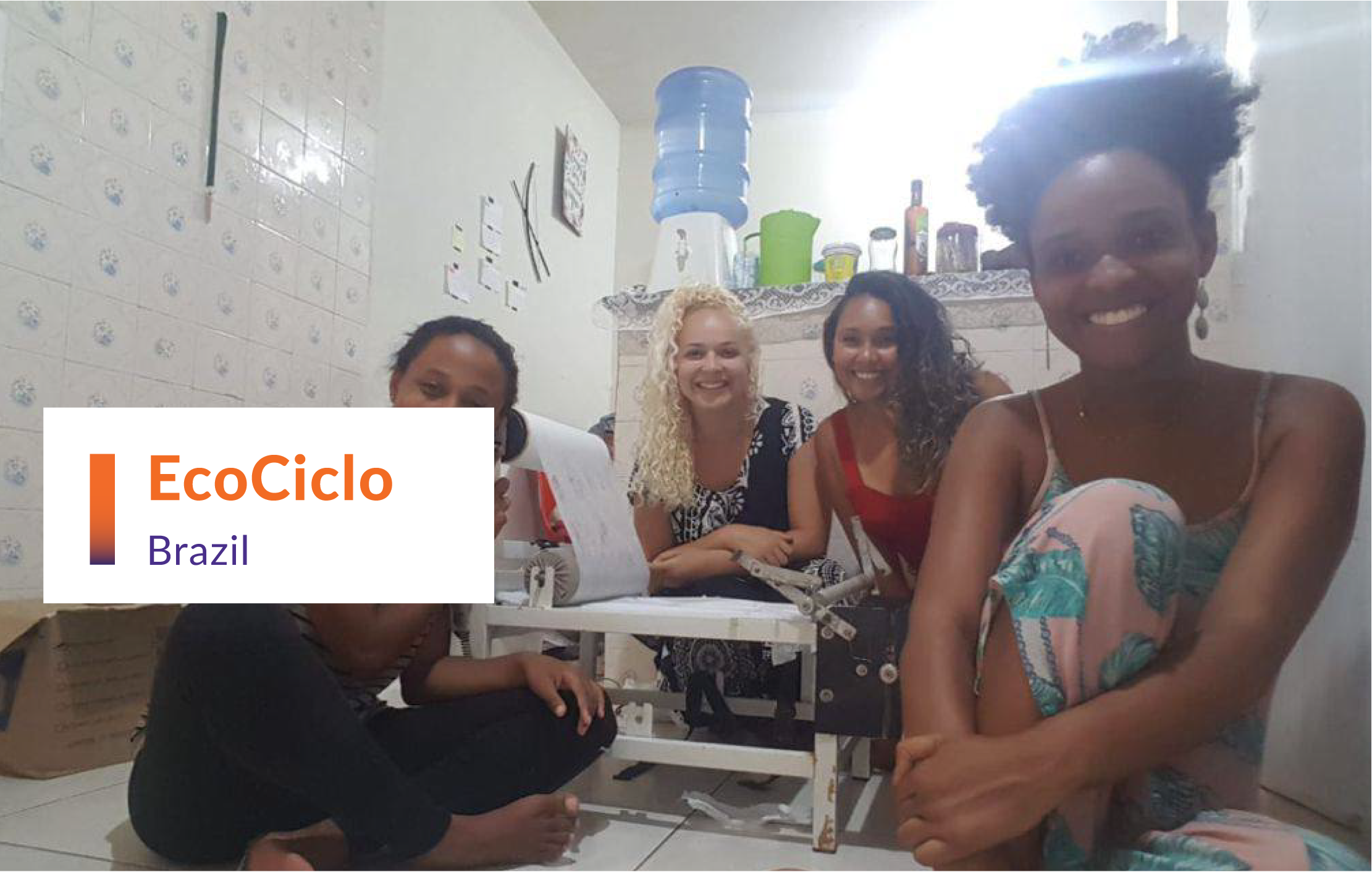Finalist
Equal Rights and Non-Discrimination
Environmental Justice
Public Health
Women's Rights
Share this
Contact information

EcoCiclo: Creating opportunities for vulnerable women in Brazil through sustainable menstrual justice
The Problem
Menstrual poverty and economic poverty are intertwined, but society does not pay proper attention to this problem. 12% of the world's population does not have access to menstrual hygiene products, and as a result students miss up to 45 days of class.
In Brazil, 13.6 million people live in conditions of extreme poverty and 51.5 million people live below the poverty line. A United Nations report about menstrual poverty in Brazil showed that more than four million girls lack access to menstrual care items in schools and 26% of girls aged 15 to 17 do not have access to sanitary pads.
The Approach
EcoCiclo aims to support women in socially vulnerable situations, who are unemployed and/or live in rural areas, through the production of biodegradable sanitary pads.
EcoCiclo was developed in 2018 and launched in 2021. The first stage of the project is being implemented in the city of Salvador. EcoCiclo’s sanitary pads are the first 100% biodegradable, hypoallergenic, non-toxic, and vegan menstrual pads in Brazil. This product generates income for women through its production and resale. Its accessible price in comparison to other sustainable menstrual products makes it one of the most practical options on the market.
During the pandemic EcoCiclo decided to help female entrepreneurs facing difficulties. EcoCiclo provided educational training on social entrepreneurship to more than 200 women in marketing, sales, sustainability, finance, and press relations and created a marketplace for women who produce and sell sustainable products.
The Impact
- One million people reached through social networks that now have access to EcoCiclo’s products.
- Ending the taboo on menstruation in Brazil and stimulating the debate on the importance of sanitary pad distribution.
- In Salvador, legislation was approved to start free distribution of sanitary pads in schools starting in 2022.
- Created the series “People Who Menstruate”, which features the different types of bodies of people who menstruate, with a transgender man among the models.
- Prioritized social entrepreneurship training for people in vulnerable situations, such as women and refugees.
The Future
In 2022 EcoCiclo will scale up to a national market, and will have developed, implemented, and disseminated the “People who Menstruate'' Project. EcoCiclo plans to launch its innovation laboratory to help more women develop sustainable products and begin selling their tampons. By the end of the year EcoCiclo aims to have trained 1,000+ women in sustainable entrepreneurship and have 50+ stores in the EcoCiclo Marketplace.